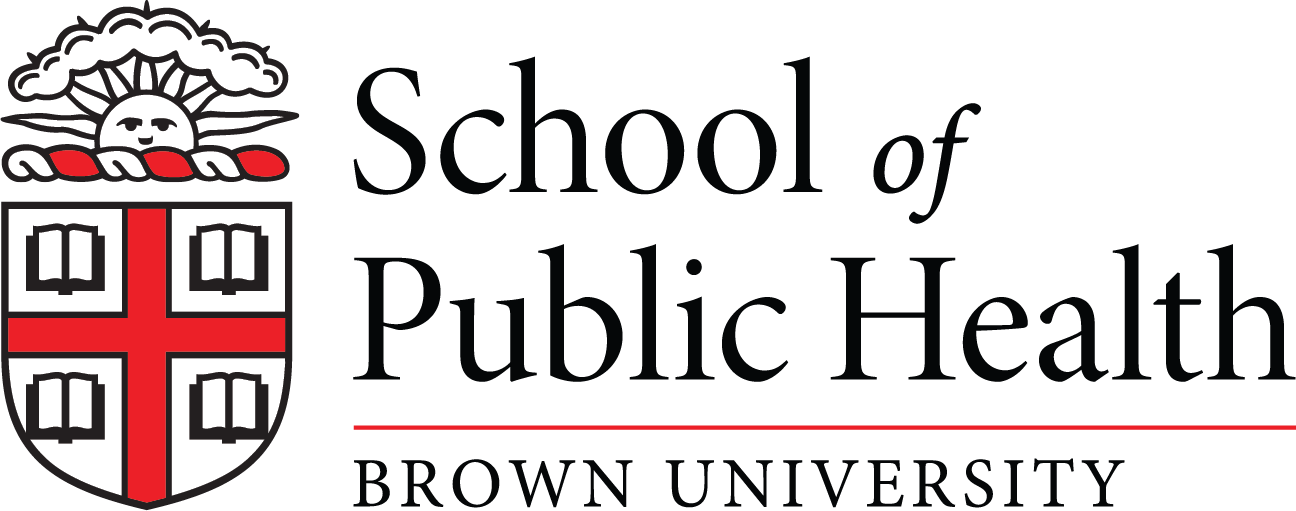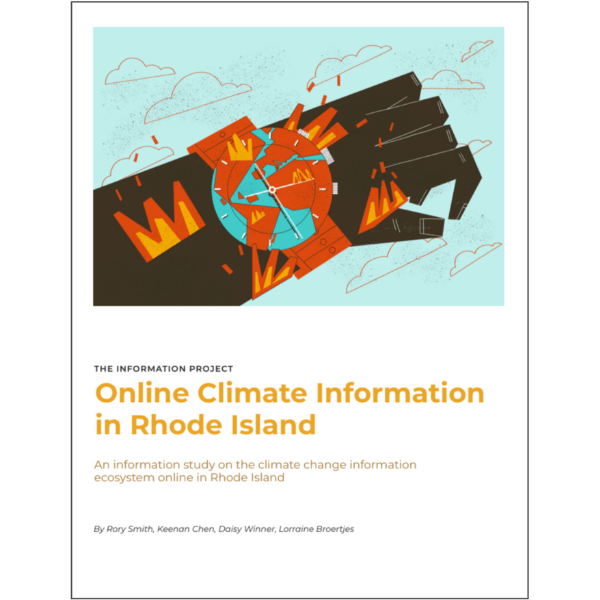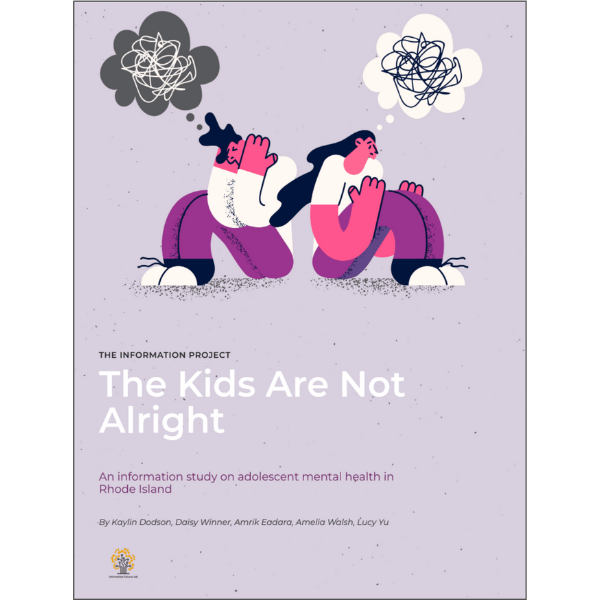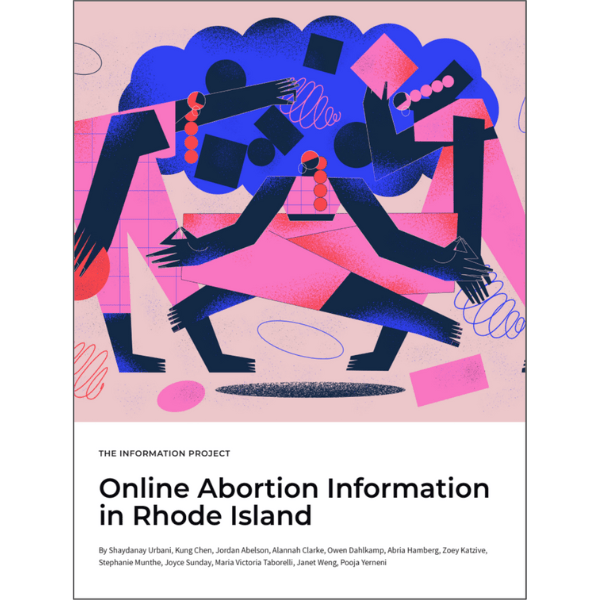The Information Project
We launched the Information Project (TIP) in early 2023 to pilot a novel way of better understanding and meeting people’s information needs on specific topics, and train the next generation of leaders to manage information challenges. TIP brings together students, researchers, community organizations, journalists and others who participate in local information ecosystems.
As a first step, we piloted the program with Brown students who worked alongside our staff to understand how Rhode Island communities are seeking information about three topics: climate & health, mental health, and reproductive health. The pilot showed that currently, information needs are not being met by the content Rhode Islanders find through searches and on social platforms.
The three reports below detail our methodology and findings along with some recommendations to strengthen information ecosystems for Rhode Islanders. As a next step, our Lab will collaborate with community organizations, local media, and civic leaders to build partnerships for tackling such information challenges, contextualize these early findings, refine methodologies, and co-create solutions.
What’s next for The Information Project
Here at the Lab, we believe that to make progress on resolving information challenges, we need to get more granular — and more local. We need to get a better sense of individual information ecosystems, on distinct topics, in distinct communities. And we can’t do it alone, nor would we want to.
For phase 2 of The Information Project, we started building collaborations with and among community organizations, local media, and other diverse creators of content and trusted information in Rhode Island. The goal: Pilot a new way for students, researchers and local organizations to collaborate on information needs assessments, capacity building, and identifying what matters locally.
During spring 2024, a team of 14 Brown undergraduate, graduate and PhD students worked together to learn how to identify, research and respond to the information needs of Rhode Island residents. Their research quickly led them to a high volume of housing-related conversations and questions online, and to recognizing a critical need for more accessible information on the topic.
Meeting people’s information needs becomes a lot easier once we know what questions people have at various points in time, what information they have access to and where, and who they trust when making sense of things.
Imagine that five years from now, we could have a network of TIP chapters around the world. Students and researchers working with local organizations, on local information challenges, co-designing local solutions — yet informing and learning from each other’s work. Join us to make this vision a reality!

How to get involved
Whether you are a student looking to participate in The Information Project, a researcher interested in partnering to explore information needs in communities, a potential host of a new chapter of TIP, or a funder interested in the opportunity to invest in the Project’s impact, we want to hear from you.



